
Conductor
When a precious hoard of gold is stolen from the river Rhine, it unleashes a chain of destructive events, pitting gods and mortals against one another for generations. Wagner’s Ring cycle boasts some of the greatest music ever written for the opera stage. Join us as we embark on a spectacular journey into the world of myth, dream and memory, with the figure of Erda – Mother Earth herself – at its centre.

Conductor
Passions run high as Manrico and the Count di Luna compete for the affections of Leonora. Little do they know, Manrico’s mother Azucena has been keeping a terrible secret for decades. Soon a curse from the past will rise up from the ashes with devastating implications for them all. Starring Rachel Willis-Sørensen, Yusif Eyvazov, Gregory Kunde, Ludovic Tézier and Jamie Barton, Adele Thomas’s energetic staging sets Verdi’s tale in a Hieronymus Bosch-inspired universe of medieval superstition. On the podium, Antonio Pappano conducts Verdi’s dramatic score, featuring the famous Anvil chorus.

Director
Love and duty collide and nations clash in Verdi's political drama, starring Elena Stikhina and Angel Blue and conducted by Antonio Pappano and Mark Elder.
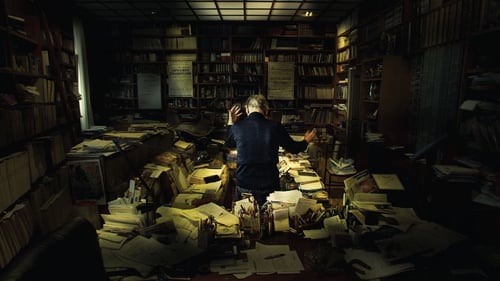
Self
A portrait of Ennio Morricone, the most popular and prolific film composer of the 20th century, the one most loved by the international public, a two-time Oscar winner and the author of over five hundred unforgettable scores.
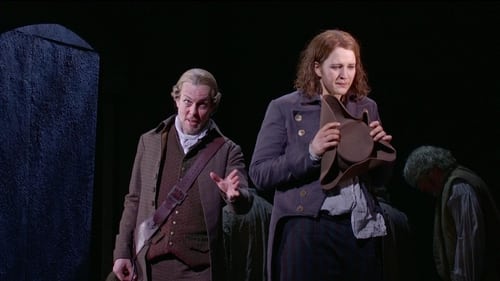
Conductor
Beethoven’s only opera is a masterpiece, an uplifting story of risk and triumph. In this new production, conducted by Antonio Pappano, David Butt Philip plays the political prisoner Florestan, and Lise Davidsen his wife Leonore (disguised as ‘Fidelio’) who daringly sets out to rescue him. Set in strong counterpoint are the ingredients of domestic intrigue, determined love and the cruelty of an oppressive regime.

Piano
Live from Covent Garden will celebrate ballet and opera in programmes of dance and music, curated by artistic directors of the Royal Opera House: Antonio Pappano, Music Director of The Royal Opera, Oliver Mears, Director of Opera, and Kevin O’Hare, Director of The Royal Ballet.

Conductor
Beethoven’s only opera is a masterpiece, an uplifting story of risk and triumph. In this new production, conducted by Antonio Pappano, Jonas Kaufmann plays the political prisoner Florestan, and Lise Davidsen his wife Leonore (disguised as ‘Fidelio’) who daringly sets out to rescue him. Set in strong counterpoint are the ingredients of domestic intrigue, determined love and the cruelty of an oppressive regime. The music is transcendent throughout and includes the famous Act I Quartet, the Prisoners’ Chorus and Florestan’s impassioned Act II cry in the darkness and vision of hope. Tobias Kratzer’s new staging brings together the dark reality of the French Revolutionary ‘Terror’ and our own time to illuminate Fidelio’s inspiring message of shared humanity.

Conductor
Verdi's sweepingly ambitious opera on war, religion, love and fate is given a cinematic staging by Christof Loy. The Marquis of Calatrava forbids his daughter Leonora to marry the South American nobleman Don Alvaro. The lovers attempt to elope, but the Marquis catches them. In the ensuing altercation, Alvaro accidentally kills the Marquis, who curses his daughter as he dies. Leonora and Alvaro become separated during their escape. Leonora's brother Don Carlo di Vargas decides to find them and avenge his father.

Writer
Antonio Pappano, music director of the Royal Opera House, Covent Garden, explores the greatest arias in the genre through a mix of workshops and archive footage. Nothing pulls harder at the heartstrings than an opera aria – that pivotal moment when the action stops and the character draws us right into the heart of the drama, revealing his or her innermost feelings and thoughts. These are chances for the singers to show off, to wow an audience with some of the most famous music in opera. In this film, charismatic conductor and music director of the Royal Opera House, Antonio Pappano, shares his selection of some of opera’s greatest arias. Pappano’s choices stretch across the full 400-year operatic canvas and feature some of the most ravishing and famous arias in the repertoire.

Self
Antonio Pappano, music director of the Royal Opera House, Covent Garden, explores the greatest arias in the genre through a mix of workshops and archive footage. Nothing pulls harder at the heartstrings than an opera aria – that pivotal moment when the action stops and the character draws us right into the heart of the drama, revealing his or her innermost feelings and thoughts. These are chances for the singers to show off, to wow an audience with some of the most famous music in opera. In this film, charismatic conductor and music director of the Royal Opera House, Antonio Pappano, shares his selection of some of opera’s greatest arias. Pappano’s choices stretch across the full 400-year operatic canvas and feature some of the most ravishing and famous arias in the repertoire.
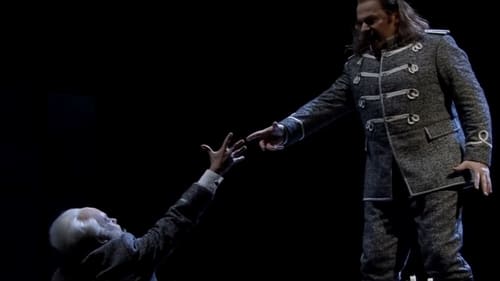
The dark world of Tchaikovsky’s penultimate operatic masterpiece Queen of Spades hinges on obsession, greed, and a secret in winning at cards… In 2005, the Opéra Bastille mounted a compelling production featuring Vladimir Galouzine as the mad lover Hermann, Hasmik Papian as the doomed Lisa, and Irina Bogatcheva as the mysterious Comtesse.

Conductor
The dark world of Tchaikovsky’s penultimate operatic masterpiece Queen of Spades hinges on obsession, greed, and a secret in winning at cards… In 2005, the Opéra Bastille mounted a compelling production featuring Vladimir Galouzine as the mad lover Hermann, Hasmik Papian as the doomed Lisa, and Irina Bogatcheva as the mysterious Comtesse.

Music Director
A penniless poet, a young seamstress, and a lost key: Puccinis passionate opera tells the story of a captivating romance set against the background of 19th-century Paris. The luscious score, with its soaring melodies and rich orchestration, brings to life the relationships between Rodolfo, Mimì and their friends, the painter Marcello and fiery Musetta. Acclaimed director Richard Jones stages a fresh and intelligent new production of one of the worlds most popular operas, conducted by The Royal Operas Music Director, Antonio Pappano.

self
Portrait of an exceptional musical talent and one of opera’s biggest stars, mezzo-soprano Cecilia Bartoli. With interviews from her illustrious friends and colleagues from the world of classical music: Daniel Barenboim, Antonio Pappano, Gustavo Dudamel and more.

Conductor
Puccini’s Japanese tragedy Madama Butterfly is given a ravishing production by The Royal Opera. Its alluring imagery of Japan from the 19th-century European Imagination heightens the intense clash of East and West. When the American naval officer Pinkerton seduces the young ‘Butterfly’ Cio-Cio-San, he seems to promise every happiness – but his cruel abandonment leads to her tragic self-sacrifice. Antonio Pappano, Music Director of The Royal Opera and renowned for his interpretations of Puccini, conducts an exceptionally fine cast with the Royal Opera Chorus and the Orchestra of the Royal Opera House. Powerful performances show why Madama Butterfly remains one of the all-time operatic favourites.
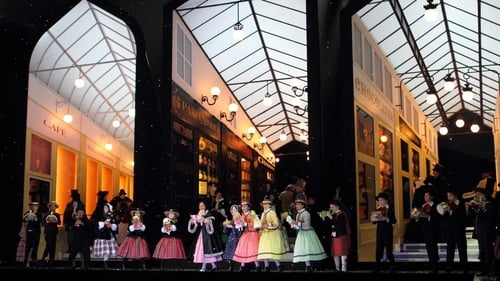
Conductor
Puccini’s passionate opera is conducted by Antonio Pappano and stars a superb young cast including Nicole Car, Michael Fabiano and Mariusz Kwiecień, in a new production by Richard Jones.
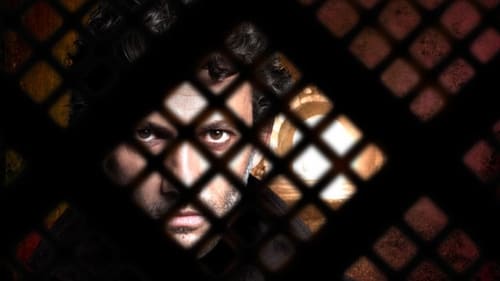
Conductor
On a June night in 2017, opera lovers thronged to the Royal Opera House in London to hear tenor Jonas Kaufmann, recently acclaimed by The Daily Telegraph as the world s greatest tenor, make his eagerly anticipated debut in the title role of Otello Verdi s greatest and most demanding role for tenor voice. As the New York Times wrote Mr. Kaufmann made his debut in the part, and he calmly, confidently sang it for the ages.

Conductor
Cio-Cio-San, the young Japanese bride of dashing American officer Lieutenant Pinkerton, finds her romantic idyll shattered when he deserts her shortly after their marriage. She lives in hope that one day he will return. Three years later, Cio-Cio-San and her little son see Pinkerton’s ship in the harbour. She excitedly expects his visit – but Pinkerton and his American wife Kate have come only to take the boy away, to raise him in America. Cio-Cio-San bids her son farewell and then takes her own life.

Conductor
The priestess Norma loves Pollione, leader of the occupying force suppressing her people, and has borne two children by him. But Pollione’s love has withered, and he now loves Norma’s fellow priestess Adalgisa. Meanwhile, the people urgently look to Norma to lead their rebellion. Norma discovers the love between Pollione and Adalgisa. Furiously she gives the signal for war. Pollione is captured, attempting to steal away with Adalgisa. Norma, called upon to announce a sacrificial victim to consecrate the uprising, declares it shall be a guilty priestess: herself.

Himself - Conductor
The priestess Norma loves Pollione, leader of the occupying force suppressing her people, and has borne two children by him. But Pollione’s love has withered, and he now loves Norma’s fellow priestess Adalgisa. Meanwhile, the people urgently look to Norma to lead their rebellion.
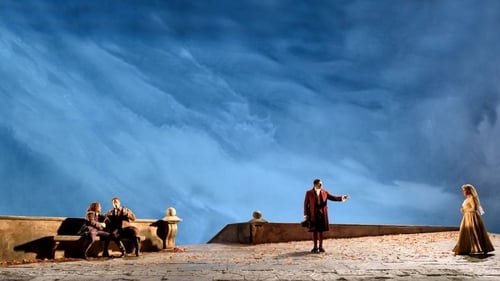
Conductor
Werther loves Charlotte, but she promised her mother on her deathbed that she would marry Albert. After the marriage Charlotte suggests that Werther should travel – but not forget her. Benoît Jacquot’s production of Massenet’s tragic opera explores the conflict between duty and our most passionate desires.

Conductor
"Manon Lescaut is a heroine I believe in," wrote Giacomo Puccini to his publisher Giulio Ricordi. Experience Puccini's third opera and first big success in Götz Friedrich's landmark 1983 production at the Royal Opera House. The extraordinary Plácido Domingo and Kiri Te Kanawa take on the roles of the Chevalier Des Grieux and Manon Lescaut, accompanied by the Royal Opera House Choir and Orchestra under the direction of Giuseppe Sinopoli.

Conductor
Damiano Michieletto's production for The Royal Opera updates the works to southern Italy in the late 20th century.

Conductor
“Kaufmann is performing the title role for the first time, and it’s hard to imagine him bettered. His striking looks make him very much the Romantic and romanticised outsider of Giordano’s vision. His voice, with its dark, liquid tone, soars through the music with refined ease and intensity: all those grand declarations of passion, whether political or erotic, hit home with terrific immediacy.” – The Guardian Presented in its Covent Garden premiere in January 2015, this staging – directed by David McVicar and conducted by the Royal Opera’s Music Director, Sir Antonio Pappano – shows a bloody tricolour daubed with the words “Even Plato banned poets from his Republic” – written by Robespierre on the death warrant of the historical Chénier, a poet and journalist sent to the guillotine in 1794 for criticising France’s post-revolutionary government.

Music Director
New production. Recorded live at Royal Opera House, July, 05, 2015.

The story concerns the enlightenment of the Christian King Roger II by a young shepherd who represents pagan ideals. Kasper Holten’s production (The Royal Opera’s first) of Król Roger (King Roger) brought the opera back to the London stage after an absence of almost 40 years. Karol Szymanowski’s masterpiece powerfully presents the dilemmas of culture versus nature and man versus beast, and movingly depicts King Roger’s inner struggles as he moves from an impossible life of repressed desires to the other extreme, giving in to his own demons. Meanwhile, Roger’s people, seduced by the promises of the mysterious Shepherd, are drawn towards totalitarianism and repression. Antonio Pappano conducts Szymanowksi’s opulent and beautiful score, with a cast including Mariusz Kwiecień as Roger (one of the greatest interpreters of the role today), Saimir Pirgu as the Shepherd, and Georgia Jarman in her Royal Opera debut as Roger’s loving queen Roxana.

Conductor
In Giuseppe Verdi's little-known early tragedy, a despairing father is torn between love for his family and his duty to a corrupt city. Jacopo Foscari, son of a 15th-century Doge of Venice, is convicted of murder and treason on a trumped-up charge. His wife Lucrezia is sure of his innocence. But the Doge, trapped by the machinations of the city, is forced to make a terrible decision.

Music Director
The French tale of a beautiful young woman destroyed by her conflicting needs for love and luxury.

Conductor
Manon Lescaut's production was updated and it worked. Highly professional production with two of the best performances I've ever witnessed in any opera. By the end of the third act I was crying and by the end of the fourth act I could not stop the tears. These two can not only sing up a storm they act one as well. This is the best Manon Lescaut I've ever seen and hope the upcoming one at the Met is as good. It truly was thrilling. Kaufmann and Opolais were unbelievably fantastic and the orchestra was superb. Pappano is the kind of maestro you want to sing for as he coaches as in the old days of maestros like Levine, etc. This is highly recommended as a keeper!

Conductor
A young man ignorant of everything, including his own name, arrives at the Kingdom of the Holy Grail. Is he the ‘pure fool, enlightened by compassion’, who, it has been prophesied, will purify the kingdom?

Music Director
The French have occupied Sicily, and Hélène is held hostage by Montfort, the French governor, who has had her brother executed. She turns to the partisan Jean Procida and the rebellious patriot Henri in her bid for vengeance. Les Vêpres siciliennes is one of Verdi’s lesser-known mature operas, but was vital to his development as a composer. It was created for the Paris Opéra in 1855, providing Verdi with an opportunity to embrace the elaborate style and traditions of French grand opera. First seen at the Royal Opera House in 2013, this staging of Verdi's rarely-performed opera Les Vêpres siciliennes – directed by Stefan Herheim and conducted by The Royal Opera’s Music Director, Verdi specialist Sir Antonio Pappano – went on to win the prestigious Olivier Award for Best New Opera Production.

Protagonist
The Italian Character: a film within music and about music. The Italian character is the story of one of the most renowned orchestras in the world, enriched by archive material of the last thirty years about the great conductors who have been performing on the most famous rostrum in Rome.

Conductor - Self
Verdi wrote this five act opera with a French Libretto for the Paris opera. Premiere 1867. Then there are three versions of this opera, the French 1867 version, the revised Italian four Act Don Carlo 1884, plus the Modena version 1886. This version is the 1884 version with Act One reinstated, as well as the original beginning of Act 2. To complicate matters the French opera was simply translated into Italian, and then the changes were made. There is an even newer edition completed in 1980 by Ricordi, and others floating around as well.

Music Director
Verdi wrote this five act opera with a French Libretto for the Paris opera. Premiere 1867. Then there are three versions of this opera, the French 1867 version, the revised Italian four Act Don Carlo 1884, plus the Modena version 1886. This version is the 1884 version with Act One reinstated, as well as the original beginning of Act 2. To complicate matters the French opera was simply translated into Italian, and then the changes were made. There is an even newer edition completed in 1980 by Ricordi, and others floating around as well.

Conductor
After the destruction of Troy, the Trojan warrior Énée sets out on a journey to found a new dynasty. He meets Didon, Queen of Carthage, and falls in love. But will Énée's love for Didon prove stronger than his sense of duty? LES TROYENS ('The Trojans') is a tour de force of music that ranges from fiery military marches to intense choruses, passionate soliloquies – such as those of the prophetess Cassandre – and the lyrical love duets of Didon and Énée. It is Hector Berlioz's largest work and he wrote the libretto himself, drawing upon his intimate knowledge of Virgil's Aeneid. To the composer's disappointment, LES TROYENS was only performed once in full during his lifetime and was often presented in shortened form during the 20th century. The Royal Opera's production provides a rare chance to see this epic work in its entirety. David McVicar's staging is on an enormous scale, assembling one of the largest casts ever seen at Covent Garden.

Music Director
After the destruction of Troy, the Trojan warrior Énée sets out on a journey to found a new dynasty. He meets Didon, Queen of Carthage, and falls in love. But will Énée's love for Didon prove stronger than his sense of duty? LES TROYENS ('The Trojans') is a tour de force of music that ranges from fiery military marches to intense choruses, passionate soliloquies – such as those of the prophetess Cassandre – and the lyrical love duets of Didon and Énée. It is Hector Berlioz's largest work and he wrote the libretto himself, drawing upon his intimate knowledge of Virgil's Aeneid. To the composer's disappointment, LES TROYENS was only performed once in full during his lifetime and was often presented in shortened form during the 20th century. The Royal Opera's production provides a rare chance to see this epic work in its entirety. David McVicar's staging is on an enormous scale, assembling one of the largest casts ever seen at Covent Garden.

Il tabarro is a tale of jealousy and murder between Michele, his young wife Giorgetta and her lover Luigi, set aboard a barge on the Seine. Suor Angelica tells the story of the nun Angelica’s familial loss, sacrifice and suicide. Gianni Schicchi is an opera full of trickery, greed and romance as a family dispute breaks out over a missing will. The Olivier-nominated Royal Opera production featuring a trio of one-act Puccini operas was first performed together on the same bill at Covent Garden in September 2011, and was acclaimed by the Telegraph as "an operatic treat... three hours of gorgeous music that allows big voices to let emotion rip" and by the Evening Standard as "a triumphant vindication of the social awareness and dramatic power of Puccini's triptych". The trio of operas offers a panorama of emotions, with the dark and foreboding Il tabarro and comic Gianni Schicchi bookending a heart-wrenching Suor Angelica.

Director

Conductor
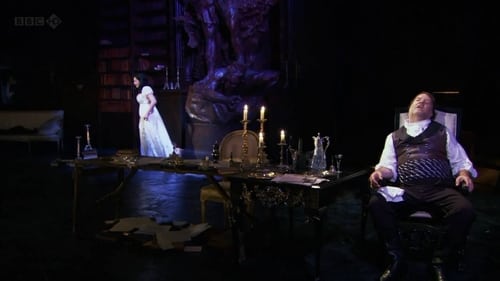
Conductor
The star singers in this revival of the 2006 production were Angela Gheorghiu, Jonas Kaufmann and Bryn Terfel; the Royal Opera Chorus and the Orchestra of the Royal Opera House were under the baton of Antonio Pappano, the Music Director of the Royal Opera House. The pageantry of church ritual, the darkness of a brooding study with its hidden torture chamber and the false optimism of the light of a Roman dawn - all throw into relief the love of the beautiful diva Tosca, the idealism of her lover Cavaradossi and the deadly, destructive obsession of the malevolent Chief of Police, Scarpia. Drama, passion and fabulous music.

Music Director
The star singers in this revival of the 2006 production were Angela Gheorghiu, Jonas Kaufmann and Bryn Terfel; the Royal Opera Chorus and the Orchestra of the Royal Opera House were under the baton of Antonio Pappano, the Music Director of the Royal Opera House. The pageantry of church ritual, the darkness of a brooding study with its hidden torture chamber and the false optimism of the light of a Roman dawn - all throw into relief the love of the beautiful diva Tosca, the idealism of her lover Cavaradossi and the deadly, destructive obsession of the malevolent Chief of Police, Scarpia. Drama, passion and fabulous music.
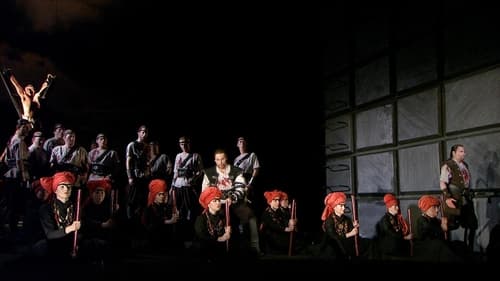
Conductor
Macbeth, the Thane of Glamis, receives a prophecy from a trio of witches that one day he will become King of Scotland. Consumed by ambition and spurred to action by his wife, Macbeth murders his king and takes the throne for himself.

Conductor
Recorded at the Royal Opera House 2011

Himself
Series tracing the history of Italian opera presented by Antonio Pappano, conductor and music director at the Royal Opera House.
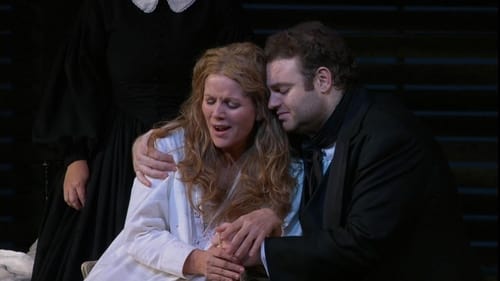
Renée Fleming has matured into one of the finest sopranos around at the moment, a true star with a sparkling personality and a velvet-toned voice that is capable of wringing the finest emotions out of works by Strauss and Tchaikovsky that from a lesser singer could sound rather cold and clinical. I wouldn't have thought her voice would be so well suited to Violetta Valéry in La Traviata, and it does take some getting used to, but I think she at least brings a distinct quality to the role with an emotional heart that isn't always necessarily there when a leading diva uses it primarily as a display for her vocal talents. It's served well also by Antonio Pappano's conducting of the Royal Opera House Orchestra in a traditional, but effective production by Richard Eyre.
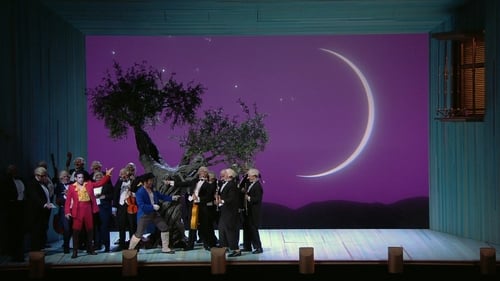
Music
23-year-old Gioachino Rossini completed his masterpiece IL BARBIERE DI SIVIGLIA incredibly quickly – legend has it in just 13 days – which Rossini attributed to ‘facility and lots of instinct’. The opera, characterized by youthful energy and bold wit, has all the ingredients for comic chaos: an imprisoned young woman, her lecherous guardian and a young noble suitor. Skilfully plotting behind the scenes is Figaro, an irrepressible and inventive character in whom many have seen a resemblance to the young Rossini himself. The score fizzes with musical brilliance, from Figaro’s famous entrance aria to the frenzy of the Act I finale. This recording sees Joyce DiDonato (Rosina) bring literal meaning to the old theatrical motto Break a leg! She did just that in an earlier show but was determined to finish her commitment and was re-staged into the production to allow for the additional challenges that come when a leading lady in a lively physical role must wheel around the other performers...

Music Director
New peoduction, 2009. Filmed by the Royal Opera House in co-production with Opus Arte, June 13/17.

Conductor
Rolando Villazón Triumphantly Returns To The Stage As Don Carlo In The 2007/2008 Royal Opera House'S Producton Of Don Carlo. National Theatre director Nicholas Hytner's new staging of Verdi's grandest-- and arguably greatest -- opera, Don Carlo, was the highlight of the 2007/2008 Royal Opera House season. This new production marked Rolando Villazón's much anticipated and triumphant return. Set amidst the political, religious and sexual intrigue of the 16th century Spanish court, this epic work tells the tragic story of Don Carlo, a virtuous young prince who is pitted against the powers of a dominant, corrupt society. First staged at The Royal Opera House in 1886, this new production is the first new version of the 5-Act complete opera to be staged at Covent Garden in 50 years. With sets and costumes by Bob Crowley, direction by Nicholas Hytner, and an enviable cast, this production of Don Carlo is worthy of the greatness of Verdi's original, masterful work.

Music Director
Rolando Villazón Triumphantly Returns To The Stage As Don Carlo In The 2007/2008 Royal Opera House'S Producton Of Don Carlo. National Theatre director Nicholas Hytner's new staging of Verdi's grandest-- and arguably greatest -- opera, Don Carlo, was the highlight of the 2007/2008 Royal Opera House season. This new production marked Rolando Villazón's much anticipated and triumphant return. Set amidst the political, religious and sexual intrigue of the 16th century Spanish court, this epic work tells the tragic story of Don Carlo, a virtuous young prince who is pitted against the powers of a dominant, corrupt society. First staged at The Royal Opera House in 1886, this new production is the first new version of the 5-Act complete opera to be staged at Covent Garden in 50 years. With sets and costumes by Bob Crowley, direction by Nicholas Hytner, and an enviable cast, this production of Don Carlo is worthy of the greatness of Verdi's original, masterful work.

Conductor
This staging of Harrison Birtwistle's opera The Minotaur features John Tomlinson, Johann Reuter, Christine Rice, and Andrew Watts in the main roles. Stephen Langridge directed the production for the stage, and Antonio Pappano conducted the orchestra.

Music Director
Jonas Kaufmann and Anna Caterina Antonacci bring rare erotic intensity to the drama of Don José and Carmen in this darkly passionate reading of one of the most popular operas. Kaufmann uses his burnished tenor and smouldering good looks to portray the man undone by Carmen's love. As the object of his desire, Antonacci gives a physical and compelling performance.

Conductor
Jonas Kaufmann and Anna Caterina Antonacci bring rare erotic intensity to the drama of Don José and Carmen in this darkly passionate reading of one of the most popular operas. Kaufmann uses his burnished tenor and smouldering good looks to portray the man undone by Carmen's love. As the object of his desire, Antonacci gives a physical and compelling performance.
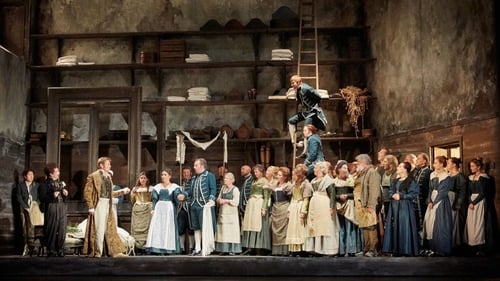
Music Director
David McVicar's spellbinding production of LE NOZZE DI FIGARO is set in 1830s post-revolution France, where the inexorable unravelling of an old order has produced acute feelings of loss. In the relationship between Finley's suave, dashingly self-absorbed Count and Röschmann's passionately dignified Countess, which lies at the tragic heart of the opera, the sexy ease between a feisty Figaro (Erwin Schrott) and a sassy Susanna (Miah Persson) is starkly absent, the tenacious spark between Marcellina (Graciela Araya) and Bartolo (Jonathan Veira) suggesting what might be rekindled. The production is superbly complemented by the beauty of Paule Constable's lighting and Tanya McCallin's evocative sets. Antonio Pappano conducts (and accompanies the recitatives) with invigorating wit and emotional depth.

Conductor
David McVicar's spectacular production of Charles Gounod’s Faust, featuring a divine cast of opera’s superstars: Roberto Alagna, Angela Gheorghiu, Bryn Terfel, Simon Keenlyside and Sophie Koch – recorded at the Royal Opera House, Covent Garden on 19 June 2004.
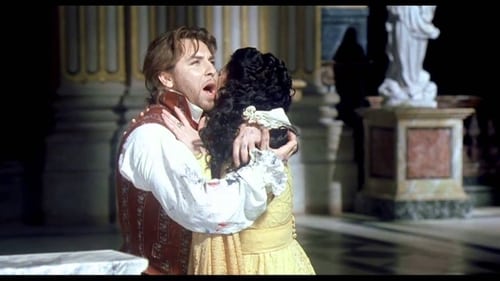
Conductor
Benoit Jacquot's acclaimed 2002 film of Puccini's opera stars Angela Gheorghiu in the title role, with Roberto Alagna, Ruggero Raimondi and the Chorus and Orchestra of the Royal Opera House, Covent Garden, under Antonio Pappano.

Music Director
Benoit Jacquot's acclaimed 2002 film of Puccini's opera stars Angela Gheorghiu in the title role, with Roberto Alagna, Ruggero Raimondi and the Chorus and Orchestra of the Royal Opera House, Covent Garden, under Antonio Pappano.

Conductor
Luc Bondy's 1996 production of Don Carlos was staged, recorded and filmed at the Chatelet in Paris. These seven performances were blessed with an all-star cast, loaded with important singers either starting their careers (Roberto Alagna) or at the height of their dramatic powers (Karita Mattila, Jose Van Dam.)

Music Director
Luc Bondy's 1996 production of Don Carlos was staged, recorded and filmed at the Chatelet in Paris. These seven performances were blessed with an all-star cast, loaded with important singers either starting their careers (Roberto Alagna) or at the height of their dramatic powers (Karita Mattila, Jose Van Dam.)

Director

Director
























